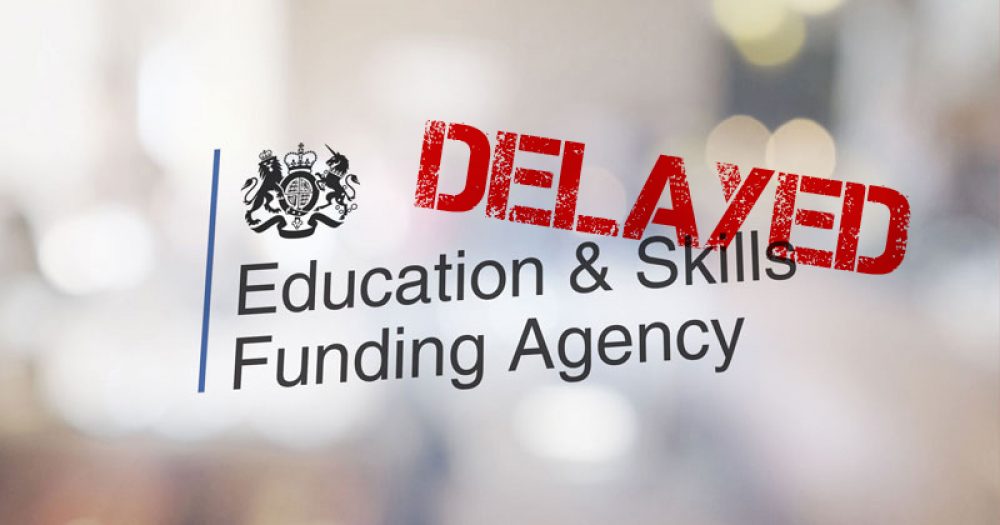The government’s decision about introducing a cap on subcontracting management fees has been “kicked into the long grass” – delaying any verdict until at least the end of 2018.
An update about the Education and Skills Funding Agency’s approach to top-slicing was published this afternoon after FE Week revealed on Friday it was getting ready to publish its first ever policy on the issue.
It was expected that guidance on management fees would be offered instead of introducing a hard cap, following a review which got underway in April. Any changes in rules from this would have come into effect this month.
The evidence and the arguments have been around for months
However, the ESFA says it hasn’t done enough work on the problem to date and further investigation is needed.
“In the coming months, we will undertake further work to develop our expectations about the services that providers should offer to their subcontractors with the sector,” today’s update said.
“Our key priorities will be to develop an approach which: increases the amount of funding that reaches front line delivery, and increases transparency by ensuring that providers explain in detail the make-up of their fees and charges.
“We plan to publish our final expectations by the end of the year and any changes will come into force in 2019.”
The news will frustrate training providers and sector leaders who’ve been waiting for the ESFA to decide whether to introduce a hard cap on the percentage that can be claimed by a prime provider as a management fee.
“It’s good to see the intention to increase the amount of funding that reaches the front line, but why the kick into the long grass?” said Simon Ashworth, the AELP’s chief policy officer.
“The evidence and the arguments have been around for months which make a strong case for a maximum cap or recommended limit.
“If this is too difficult for the agency, then we hope the select committee will do the job and make the right recommendation to ensure that unjustifiable top-slicing finally comes to an end.”
But Teresa Frith, senior policy manager at the Association of Colleges, said that until the government and FE sector is “clear as to precisely what is and is not included within ‘fees and charges’, a percentage cap makes no real sense”.
“We will continue to work closely with them and others to ensure the English apprenticeship offer continues to develop into the world class offer we aspire to,” she added.
Skills minister Anne Milton previously said she was “hesitant” to introduce a cap, and that the funding agency might be better instead to review each subcontract relationship to decide if further investigation is needed.
Lead providers often claim management fees are needed to cover administrative costs, but many in the sector, including MPs on the education committee led by chair and former skills minister Robert Halfon, believe that too much money is being diverted from frontline learning.
FE Week has exposed many situations where primes levy excessive management fees of up to 40 per cent.
The AELP, Holex, and provider group Collab signed-up in March to new best-practice guidance on relationships between primes and subcontractors – which stated management fees should not be more than 20 per cent of the programme funding.
However, it was quickly undermined when the AoC confirmed it would not commit to any recommended limit.
It claimed it was developing other guidance “properly” with the ESFA and University Vocational Awards Council.









Your thoughts